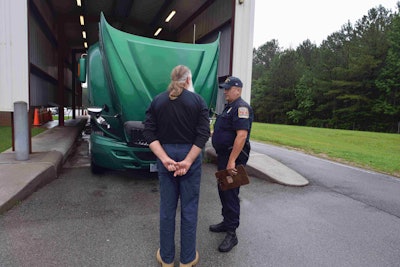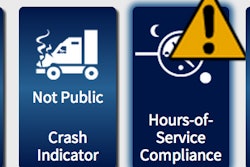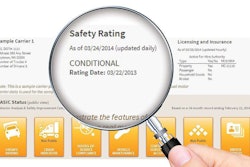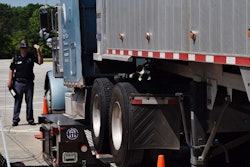Once again, the Compliance, Safety, Accountability program has been evaluated and found lacking. This time the verdict comes from the National Academies of Science, a private institution founded by Congress to provide objective research for policymakers.
The 2015 FAST Act highway bill mandated the 130-page NAS report. The act also pulled the BASIC percentile rankings of CSA’s Safety Measurement System from public view.
 Variation in enforcement procedures is one of many problems cited in the report on CSA.
Variation in enforcement procedures is one of many problems cited in the report on CSA.NAS reached conclusions similar to those aired since CSA’s launch in 2010 by owner-operators, carriers and other industry entities, including Overdrive’s multi-year, in-depth CSA’s Data Trail series by Senior Editor Todd Dills. His reporting also has shown that in some areas of enforcement, CSA’s flaws have hurt independent owner-operators more than larger fleets.
Here are some thoughts on the chief NAS criticisms on CSA:
- Some BASICs lack correlation with crash risk. For example, there’s been far too much emphasis on equipment violations and not enough on driver behavior.
- Data insufficiency. Part of this is the lack of inspections, or failure to record clean inspections, that can too easily slap an independent with a high negative score where none existed previously, triggering a potentially unwarranted audit that can result in an adverse rating. Today, Conditional ratings are tantamount to a business death sentence. Creation of a Level 8 electronic inspection, closer to a roadside reality now that the technology is more widespread, could help by adding thousands of annual inspections.
- Relative rankings. Use of these percentile or comparative ratings creates a moving target that can paint safe carriers as unsafe and vice versa.
- Use of non-fault or nonpreventable crashes. The Federal Motor Carrier Safety Administration has moved very slowly on this longstanding complaint that it’s unfair to penalize a carrier for being the victim of a reckless driver. The most recent development was last week’s announcement of a pilot program, starting Aug. 1, that lets owner-operators and carriers appeal Preventable rulings.
- Variations in inspections, violations and violation coding. If you’re going to impose a complex federal system on state and local law enforcement units, keep it consistent.
- A lack of transparency of the SMS algorithm. Those being regulated have a right to understand any system that can shut them down.
- The public availability of SMS rankings. It’s extremely irresponsible to make flawed or inadequate data available to shippers and insurers, who will punish carriers accordingly.
FMCSA says it will respond to the NAS report within 120 days of its late June release. The FAST Act encourages a comprehensive response by requiring FMCSA to adopt the study’s recommendations before the SMS can be made public again.
The added weight of NAS as an objective party is welcome, especially knowing it gives Congress a clear vision of the CSA problems. FMCSA has made relatively superficial changes – slowly – to CSA. It’s a shame that’s it’s taken so many voices to repeat the call that change needs to be faster and more substantive.









